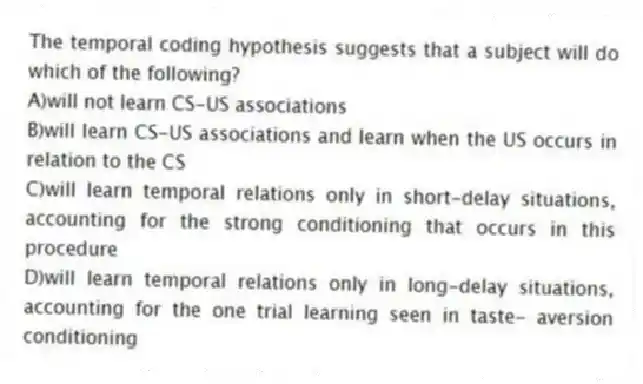
The temporal coding hypothesis suggests that a subject will do which of the following?
A) will not learn CS-US associations
B) will learn CS-US associations and learn when the US occurs in relation to the CS
C) will learn temporal relations only in short-delay situations, accounting for the strong conditioning that occurs in this procedure
D) will learn temporal relations only in long-delay situations, accounting for the one trial learning seen in taste- aversion conditioning
Correct Answer:
Verified
Q24: Which of the following best describes backward
Q25: The most frequently used procedure for Pavlovian
Q26: The interstimulus interval is usually the intertrial
Q27: Which of the following is not a
Q28: A buzzer sounds every time food is
Q30: Normally, you eat breakfast every morning at
Q31: The interstimulus interval refers to which of
Q32: The results of backward conditioning experiments demonstrate
Q33: A rat is exposed to a three-second
Q34: To conclude that an association has been
Unlock this Answer For Free Now!
View this answer and more for free by performing one of the following actions

Scan the QR code to install the App and get 2 free unlocks

Unlock quizzes for free by uploading documents